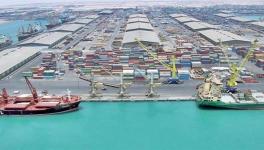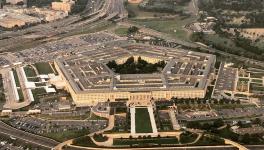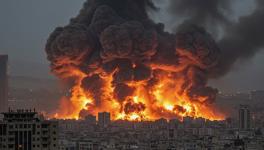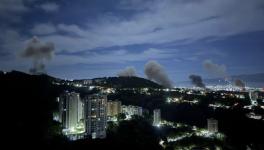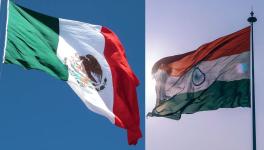Only the Coalition of Foolish Wants a War with Iran
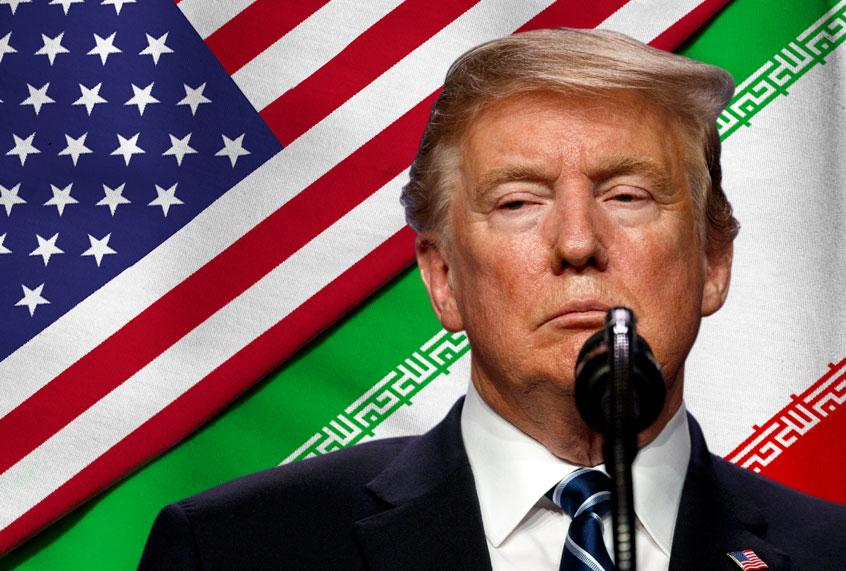
There’s no point in dredging up that old slogan, ‘No Blood for Oil’. It had no impact the last time. Don’t bomb Iraq, we said in 2002 and 2003, to no avail. George W. Bush and his friends had it in mind to destroy that country, which they did.
Donald Trump fired John Bolton. It seemed as if it would be acceptable to breathe a sigh of relief. But that was premature. Bolton was not the only one itching for a war against Iran. So was Mike Pompeo of the State Department, and so are a legion of arms dealers, lobbyists, establishment hawks, and people who believe that the United States should bomb Iran on behalf of Israel and Saudi Arabia.
Yemen’s Houthis took credit for the attack on Saudi Arabia’s eastern oilfields. But that was not enough. It was not enough that the Iraqis said that Iran did not use Iraqi territory to launch the drones. The US asserted that the attack was done by Iran. No more needed to be said. There was no need to drag someone like Colin Powell before the UN Security Council. In fact, there is no one like Colin Powell in the Trump administration. None of his Cabinet members has the kind of gravitas that can be squandered with a lie.
The reaction from Iran has been calm. The government in Tehran has decided not to cower beneath the storm clouds from Washington. It threatens Canada with its own sanctions if the Canadians do not release seized Iranian assets. An oil tanker that was carrying diesel to the United Arab Emirates has been seized by the Iranians on the grounds of smuggling. Iran’s President Hassan Rouhani told the Syria Summit in Ankara, Turkey, that there can be no stability in Syria as long as US troops remain there. Iran refuses to blink. It has taken the position that it must stand strong and call the US.bluff.
This is a dangerous bluff. But it is also a calculated one.
Trade, Not Bombs
The Iranians know that there is no appetite in Europe for a US war or even a US military strike. This week, Michael Bock, the chair of the Instrument for Supporting Trade Exchanges (INSTEX), is in Tehran. INSTEX is the mechanism created by the European Union to sidestep the US unilateral sanctions. Bock has met with the governor of the Central Bank of Iran and the head of SATMA—the Iranian institution created to facilitate INSTEX. The Europeans are eager to restart trade with Iran. They are not interested in Trump’s froth.
Nor are the Turks, whose senior banking officials have met with the Iranians to discuss how to re-establish trade outside the US orbit. Turkey is interested in its own version of INSTEX and is calibrating what it would mean for Turkey and Iran to trade using their own currencies (in the rial or the lira). Both countries have said that they would like to increase trade to $30 billion—three times the highest trade volume.
Even the British, embroiled in their Brexit mess, are not eager for war. UK Foreign Secretary Dominic Raab said “the picture is not entirely clear” as to who bombed the Saudi oil fields. He sounded like the Russians (no “hasty conclusions,” said Dmitry Peskov) and the Chinese (not easy to “apportion blame,” said Hua Chunying).
Russia and China
From the perspective of Russia and China, a US bombardment of Iran would undermine their economic projects in Eurasia. There is fear in Moscow and Beijing that such an American adventure would rip apart whatever small measure of stability has been achieved from the Mediterranean Sea to the Hindu Kush mountains. The failed US peace talks in Afghanistan leave that country now open to the initiatives from regional powers, including China and Russia.
One little-known aspect of the US-Taliban talks over Afghanistan has been the role of China. In June and July, both Abdul Ghani Baradar—the Taliban’s chief negotiator—and Zalmay Khalilzad—the US negotiator—came to Beijing at different times. China played a key role in urging Pakistan to pressure the Taliban in these talks. Even as the US has stepped away, China will continue to build relations with various factions in Afghanistan. This is essential for the China-Pakistan Economic Corridor and the Trans-Himalayan Economic Corridor, which draw the Belt and Road Initiative southward into Pakistan and Nepal.
A US war against Iran would upend the already terrible security situation in Afghanistan, and it would tear apart Syria and Iraq, as well as Lebanon. This is something that neither China nor Russia would like. That is why the US will never get a favourable UN Security Council resolution to hit Iran. It would have to do it unilaterally. There are no allies for Trump apart from Israel, Saudi Arabia, and the United Arab Emirates: This is a Coalition of the Foolish.
Recklessness
Recklessness is not the mood in Tehran—nor in Moscow or Beijing. That should by now be clear.
If you want to identify the most reckless powers in our world today, look no further than Israel, Saudi Arabia, the United Arab Emirates, and US.
Israel’s Benjamin Netanyahu has said that he wants to annex the illegal settlements in the West Bank into Israel and leave a small, encircled rump territory occupied; this rump would include Ramallah. East Jerusalem would also likely be snatched fully in this move. This is recklessness. The reaction in Palestine would be another intifada, and—very likely—it would occasion rocket strikes not only from Gaza but also from Lebanon. Such an annexation would be an invitation to war.
Saudi Arabia and the UAE have been at war against Yemen since 2015. It is a ghastly war, a reckless war, one for which there is no end in sight. Trump wants advice on how to deal with Iran from the architect of that war—Mohammed bin Salman. This is madness of the highest kind—asking a man who is in the midst of an intractable war whether one should go to war.
Which brings us to the US.
Trump has threatened war against Venezuela and Iran.
He has used the entire apparatus of the US war and money machine to conduct a hybrid war against these states. He has thus far not sanctioned a bombing run on them. But you never know. As I type these lines, Trump might be signing a document to authorise war.
No one on the planet wants Trump’s wars. We can march on the streets as we did in 2003, and the US would not pay attention to us. Certainly, Bush did not, and certainly Trump will not. The US is a reckless power. It needs to be checked.
Source: Independent Media Institute
This article was produced by Globetrotter, a project of the Independent Media Institute.
Get the latest reports & analysis with people's perspective on Protests, movements & deep analytical videos, discussions of the current affairs in your Telegram app. Subscribe to NewsClick's Telegram channel & get Real-Time updates on stories, as they get published on our website.










